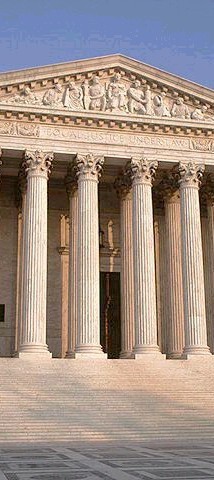Misplayed
by Jeffrey Rosen - September 10th, 2009 - The New Republic
Hasen calls Austin “the first and only case in which a majority of the Court accepted … the equality rationale as a permissible state interest.” That’s why the conservative justices on the Roberts Court seem poised to overturn it, and why Kagan was reluctant to defend the case in explicitly egalitarian terms. But there is a subtler way of defending the Court’s focus on the “distorting effects of immense aggregations of wealth”--and it has to do less with equality than with democratic legitimacy. In The Constitution in 2020, Robert Post, the new Dean of Yale Law School, rejects an egalitarian defense of campaign laws, on the grounds that if the government attempts to prevent speakers with intense convictions from drowning out those who are less engaged, it would thwart one of the basic principles of self-government: namely, that individuals should be able do whatever they think necessary to convince the public to embrace their views.
Government, whether of the executive branch variety, or the judicial variety, always wants to pick winners and losers. It seems to be something in the genes of people attracted to the power of government, they just have to use that power. Therein lies the problem with our current courts. Judges want to create specific legal circumstances where they can award victory to those who share their political preferences.
It is the reason that those leftist judges (who see themselves as sympathetic to the poor and downtrodden) wish to shut down the political influence of those they see as serving the rich and powerful. That permits for the bizarre situation where a small group of middle class conservatives can have their rights trampled by the congregated wealth of corrupt trade unions. The judges do not decided these issues by the relative actual wealth but by their perception of whose interests are served.
It is the reason that our courts have permitted such things as the multi billion dollar extortion of the tobacco industry, a product that was never illegal to sell but which the leftists judges found too reprehensible to retain the profits it created. Thus the law was effectively changed after the fact [a clear ex post facto violation of the Constitution] and civil courts were used to sanctimoniously punish people for acts that were not crimes at the time they occurred. If you look at where this "tobacco" money is going today it is clear that the beneficiaries are left wing groups unrelated to the perceived victims that these extorted dollars were supposed to help. This entire process is corrupt when viewed by any objective observer. It is a clear example of judicial corruption that many of us feel a strong necessity to end.
I am disturbed how the leftist magazine, The New Republic, can be so clearly upset at the possibility that government will not continue to interfere with political speech. This is creating tyranny against some and is clearly subverting the free speech right guaranteed in our Constitution. There was a time when liberals were defenders of freedom rather than advocates for tyranny.


0 Comments:
Post a Comment
Subscribe to Post Comments [Atom]
<< Home